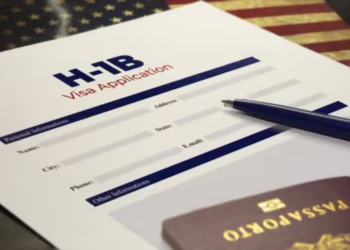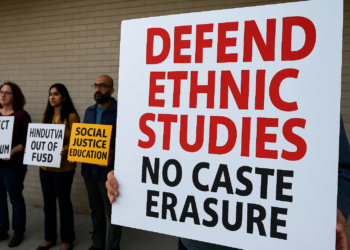Effective July 1, 2023, Indian graduates who have completed their studies at Australian tertiary institutions will now have the opportunity to seek employment in Australia for a maximum period of eight years. This development follows a recent bilateral agreement signed between India and Australia.
An integral component of this agreement is the implementation of the Mobility Arrangement for Talented Early-professionals Scheme (MATES), a program designed to facilitate the exchange of skilled professionals between the two countries.
Under this initiative, 3,000 annual spots will be made available exclusively for young professionals from India, allowing them to spend two years in Australia without requiring visa sponsorship.
In a reciprocal gesture, Australians seeking to engage in research activities in India will now have the opportunity to apply for an S-5 visa, granting them a stay of up to three years or for the duration of their research project in the country.
The MATES visa program, introduced as part of this migration deal, serves as a temporary visa option tailored to recent graduates or pass-outs from recognised Indian universities who possess specialised degrees in various fields of study. Detailed information regarding the MATES visa’s fees and visa processing time is yet to be announced.
The MATES visa, introduced as part of the bilateral agreement between India and Australia, offers opportunities for young professionals from India to work in Australia. To be eligible for the MATES visa, applicants must meet specific criteria.
The eligible fields for this visa program encompass various industries, including Engineering, Mining, Financial technology, Artificial intelligence, Information & Communication Technology, Agricultural Technology, and Renewable Energy. In addition to the fields mentioned above, graduates with specialised degrees in these areas are encouraged to apply for the MATES visa.
To be eligible for the MATES visa program, candidates must meet several criteria. Firstly, they must be below the age of 31. Additionally, applicants should have obtained their education from a recognised and verified university.
The MATES visa is specifically designed for recent graduates, giving them a chance to apply soon after completing their studies. Moreover, the program targets individuals in the early stages of their careers, as it aims to assist and nurture talented professionals at the beginning of their professional journey.
Starting July 1, 2023, eligible international graduates from higher education institutions will be provided with an extended period of post-study work rights. This extension will offer an extra two years on their Temporary Graduate Visa (subclass 485) for international higher education graduates. The extension is specifically designed to supplement the existing one to two years of additional work rights already available to eligible students who choose to study, reside, and work in regional areas.
During the COVID-19 pandemic, Australia implemented relaxed work restrictions for student visa holders, removing them entirely in January 2022. This was done to address workforce shortages by allowing primary and secondary student visa holders to work beyond the normal limit of 40 hours per fortnight.
However, starting from July 1, work restrictions for all student visa holders, excluding those in the aged care sector, will be reintroduced. The revised limit will be increased to 48 hours per fortnight. This adjustment aims to strike a balance between students’ educational focus and their ability to financially support themselves, gain valuable work experience, and contribute to Australia’s workforce requirements.
Student visa holders who were already employed in the aged care sector as of May 9, 2023, will be allowed to continue working without any restrictions in that sector until December 31, 2023.
While there is flexibility in the number of hours international students can work, it is crucial for them to fulfil certain requirements. These include maintaining their course enrolment, ensuring satisfactory attendance, and making satisfactory progress in their studies.
It is important to note that student visa holders who cancel their enrolment, stop attending classes, or fail to meet satisfactory course progress may be in violation of their visa conditions.











